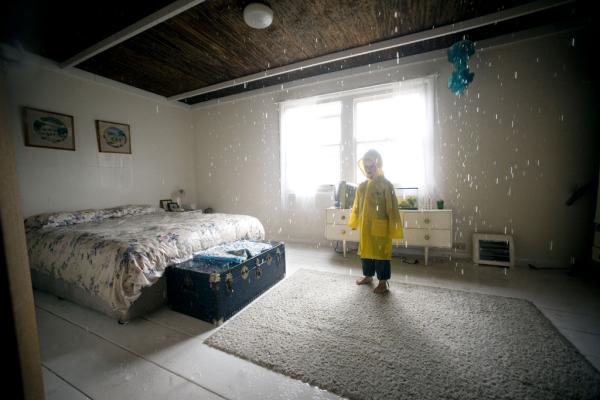Depending on where you live, roof leaks can be a serious issue. For those who live in tropical or subtropical climates, the amount of rain can become a very damaging issue. In drier climates, leaks can also be very destructive. As the ground in arid climates dries up, it becomes less water absorbent. Therefore, small amounts of rain can cause flooding or leaking that can be very damaging to your home. Bentonite based products could be the solution to your problems.
Effects of Leaks
Very often, by the time a leak is noticeable inside the house, something more serious is happening elsewhere. Water can have a very damaging effect on a house, especially on the wooden and metal portions of the house. Constant exposure to water leads to weakening and rotting of the wooden structures of a home. Wood breaks down when exposed to too much moisture.
Similarly, water can break down metals. Any metal made with iron, such as steel, could be susceptible to rust which weakens and eventually destroys the metal.
Common Causes of Leaks
Penetration leaks are the most common kinds of leaks. This does not mean that something like a tree branch has penetrated your roof, but instead, it means that water is seeping in where you meant to penetrate your roof. In your home, the most common culprits in penetration leaks are air conditioner units, sewage and water pipes, heating units, and chimneys. These are all penetrations in your roof that you meant to be there, but you did not mean for them to let water in.
Waterproofing around penetration leaks can be difficult, but not impossible.
Bentonite
Protecting your house or office from water damage can be a difficult, expensive process, but it doesn’t have to be. Bentonite is the active ingredient in many water control products.
What is bentonite? Bentonite is a volcanic clay most notable for expanding dramatically when exposed to water. The substance can hold many times its mass in water. This makes it a very ideal product for protecting against water. This swelling feature makes bentonite useful for sealing penetration leaks. As water hits the substance, it grows and creates an even tighter seal. In this way, bentonite reaches places that standard polymer mats could not.
The insidious nature of penetration leaks is that they tend to occur at joints and intersections which are very small. Swelling bentonite grows to fit the crack.
Bentonite is also very useful due to its ease of application. Many purely polymer solutions or peel and stick solutions cannot be applied in freezing conditions because the adhesives will not be sufficiently tacky. Bentonite based applications can be applied under any temperature conditions.
In addition to cold weather conditions, the bentonite based products can be applied in wet or dry conditions. As the volcanic clay absorbs moisture, you can apply it in wet weather conditions. You can also apply it in dry conditions without any need to hydrate it. As soon as the bentonite is exposed to rainwater, it will hydrate and swell, forming a tight seal.
Saturday 05 April 2025




